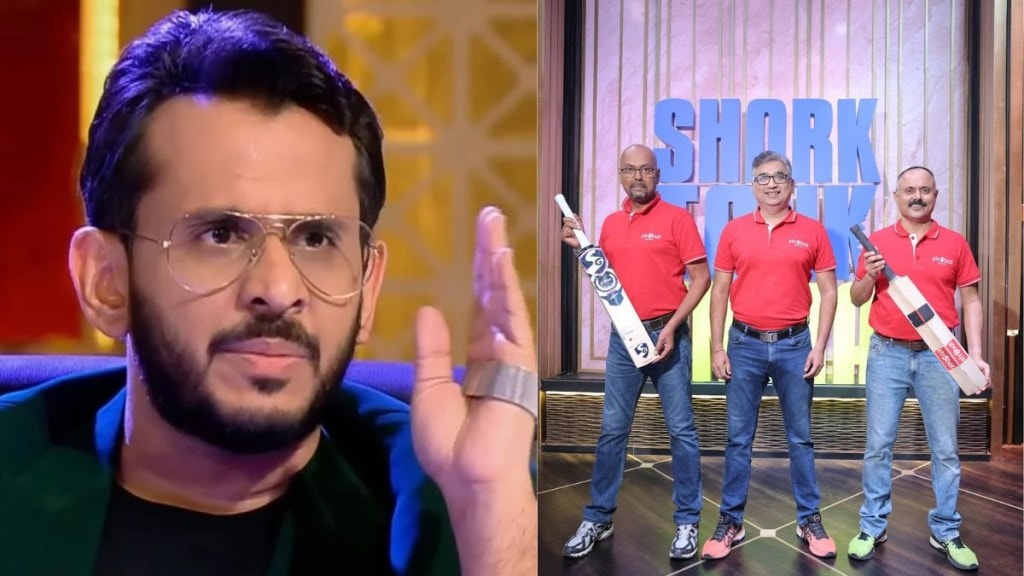Cricket has long relied on intuition and experience, but Indian sports tech startup Str8bat is pushing for a more data-driven approach with its bat sensor technology. Featured on Shark Tank India Season 4, the startup faced tough questions, with Aman Gupta even asking, “Have you come here to do marketing?” as he and Ritesh Agarwal engaged in a casual cricket session, where Agarwal emerged as the better. Despite the scepticism, Str8bat’s founders defended their vision, emphasising how their technology provides valuable insights for players at all levels. “The response from professionals and amateur cricketers to Str8bat has been overwhelming; 91% of our players, irrespective of skill level, have improved their batting since using it,” said Gagan Daga, CEO and co-founder, in a conversation with BrandWagon Online. As Str8bat reflects on their Shark Tank experience, they also focus on data privacy and expansion plans, aiming to change cricket training with analytics-driven improvements.
Shark Tank India
Str8bat entered Shark Tank India with confidence, seeking Rs 1.5 crore for just 1% equity, backed by an impressive claim that 91% of its users had improved their batting. The product, already gaining traction among international and amateur cricketers, intrigued the Sharks, especially Aman Gupta, who connected with the founders’ journey. While Ritesh Agarwal, Kunal Bahl, and Vineeta Singh stepped out due to differing visions, Namita Thapar saw potential and made an offer. However, negotiations took a turn when Aman questioned whether the founders were serious about a deal or just leveraging the platform for exposure.
Aman Gupta acknowledged the product’s accuracy, while the pricing—Rs 6,499 with an annual subscription of Rs 1,188—sparked discussion among the Sharks. The company pointed to its backing from Cricket Australia, which holds a 5.5% stake, along with investors like Greg Chappell and James Sutherland. He then offered Rs 1.5 crore for 4% equity, prompting the founders to counter at 2.5%. After intense back-and-forth, Aman and Namita teamed up, finalising a deal of Rs 1.5 crore at 3.5% equity.
The product has gone through several iterations since its prototype, which was bulky and impractical, Daga recalls. The device tracks key batting metrics and allows players to compare their performance over time, providing a structured way to assess improvement. He acknowledges that refining the device was a process of trial and error, driven by user feedback. “We kept refining the product based on what users wanted, why they wanted it, and how easy it was to use,” Daga said. Early customers like Cricket Australia and Rajasthan Royals played a role in shaping its development. Str8bat’s broader ambition is to integrate smart technology into all sports equipment. “For far too long, sports equipment has been dumb,” Daga says, adding that the company sees potential in making analytics a default feature rather than a luxury. The data Str8bat collects has already highlighted technical nuances—such as how a minor change in backlift angle can significantly impact bat speed and shot power—offering players a more scientific approach to improvement, the company claimed.
Data privacy is a sure shot
However, with any data-driven product comes the challenge of privacy and security. Str8bat claims to prioritise player data protection. “We do not share any player data without prior consent; the data is secured using best-in-class standards, including third-party cloud servers,” Daga states. From a business perspective, Str8bat is trying to balance innovation with financial sustainability. Unlike many tech startups that focus solely on rapid expansion, it emphasises profitability. “We believe frugality is key to being innovative and creative,” Daga commented.
As Str8bat expands beyond India and Australia, its success will depend on whether cricketers and teams see long-term value in its data-driven approach. While sports analytics is growing in popularity, adoption at scale remains a challenge—one that Str8bat will have to navigate as it seeks to establish itself globally.

